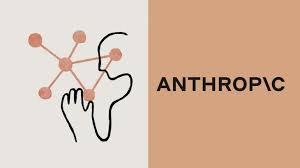Amazon has reached an agreement to invest up to $4 billion in the artificial intelligence (AI) startup Anthropic.
This comes as the e-commerce giant ramps up its competition with Microsoft, Meta, Google, and Nvidia in the rapidly expanding industry, which many engineers feel might be the next great frontier.
The online retailer has announced that it will make an initial investment of $1.25 billion in exchange for a minority ownership in Anthropic. Anthropic, much like Google’s Bard and Microsoft-backed OpenAI, runs an AI-powered chatbot that analyses text. Amazon has stated that as part of the agreement, it will receive the option to expand the amount of money it invests in Anthropic to a total of $4 billion.
An earlier announcement made by Anthropic, which also counts Google as an investor, stated that the company intends to raise up to $5 billion over the course of the following two years. According to a 2023 investor deck TechCrunch obtained earlier this year, the company Anthropic, which earlier this month launched its first consumer-facing premium subscription plan for chatbot Claude 2, plans to build a “frontier model” that is 10 times more capable than today’s most powerful AI. This model is tentatively called “Claude-Next.”
Read also: Nokia to launch AI-powered Open Innovation Lab in Dubai
The aftermath of investment in Anthropic
This new development, however, will call for expenditures of one billion dollars over the course of the following 18 months, the firm warned. Microsoft has placed an investment of up to $11 billion in OpenAI for years now.
Anthropic has found a strategic investor with significant pockets in Amazon, which can also supply it with computing power to construct future AI models and then identify and help sell the solutions to a large number of cloud customers. Additionally, Amazon can provide Anthropic with computation capacity to build future AI models.
According to the statement made by the e-commerce company, the investment deal stipulates that Anthropic would use Amazon Web Services (AWS), the huge cloud computing division of Amazon, as its principal cloud provider for mission-critical workloads. These will include safety research and the development of future foundation models. In addition, Anthropic will make use of AWS Trainium and Inferentia chips in order to construct, train, and deploy its upcoming foundation models. Since the year 2021, Anthropic has been a customer of Amazon Web Services.
What Anthropic says
Last week, Dario Amodei, the chief executive officer and co-founder of the startup, shared that he does not foresee any obstacles on the path of his company’s primary technology in the near future.
“The last 10 years, there’s been this remarkable increase in the scale that we’ve used to train neural nets, and we keep scaling them up, and they keep working better and better,” he said last week. “That’s the basis of my feeling that what we’re going to see in the next 2, 3, 4 years… what we see today is going to pale in comparison to that.”
Anthropic has made a “long-term” commitment to providing AWS customers all around the world with access to future generations of its foundation models via Amazon Bedrock. Amazon Bedrock is a fully managed service offered by AWS that offers secure access to the most successful foundation models in the industry. In addition, the startup will provide early access to one-of-a-kind tools for model customisation and fine-tuning capabilities available to AWS users.
“Training state-of-the-art models requires extensive resources, including compute power and research programs. Amazon’s investment and supply of AWS Trainium and Inferentia technology will ensure we’re equipped to continue advancing the frontier of AI safety and research,” said Anthropic in a statement.
“We look forward to working closely with Amazon to responsibly scale adoption of Claude and deliver safe AI cloud technologies to organizations around the world.”
